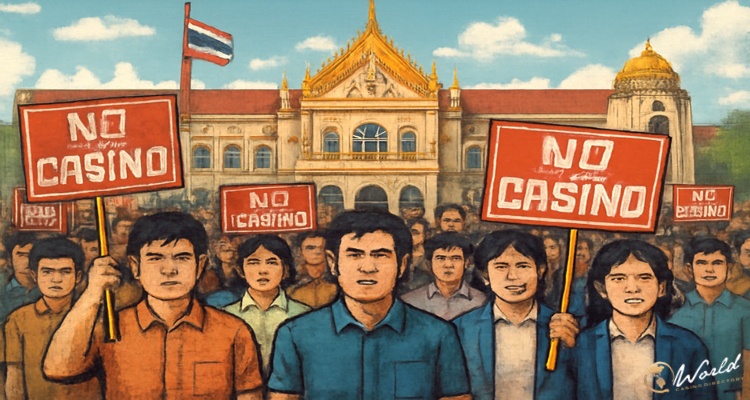Thailand’s proposed legislation to establish casino-inclusive entertainment complexes has been moved to the lowest priority on the parliamentary agenda, reflecting increased public pressure and growing legal scrutiny. While the bill remains on the docket, a formal resolution is required to remove it entirely, according to Deputy Transport Minister Manaporn Charoensri.
Originally slated as the first item for discussion on July 9, the bill will now trail behind measures promoting social peace and political amnesty. The change comes after the Pheu Thai Party—currently leading the government—signaled a strategic pivot based on feedback from constituents. “The government always listens to the people and takes their voices into account,” Manaporn said, dismissing claims that the deferral was a concession to opposition demands, as reported by the Bangkok Post.
Although a recent NIDA poll indicated that opposition to casino complexes had dipped slightly since previous surveys, resistance still exceeds 50%, prompting the government to scale back immediate plans for the controversial legislation.
Senate Flags Constitutional and Economic Flaws in Draft Bill
The Senate’s own review has added further complications to the bill’s prospects. Senator Veerapun Suvannamai, who chairs the committee examining the draft, warned that the proposal could breach several clauses of the 2017 Constitution—namely Sections 3, 58, 63, and 65. The concern arises from the bill’s initial framing as an entertainment initiative without explicit mention of casino operations.
Senator Veerapun stated that a constitutional challenge could potentially result in the law being struck down, particularly if the matter is brought before the Constitutional Court. “The government should withdraw the bill altogether,” he said in response to Pheu Thai’s decision to merely delay deliberation.
In addition to legal hurdles, the Senate panel also questioned the economic rationale behind the proposal. Citing input from the National Economic and Social Development Council, the senator pointed to a global decline in casino revenues and warned that Thailand’s entry into the market may not deliver the expected boost to GDP. He added, “Most casino profits go to private investors, not the state. This raises serious doubts about the government’s projected tax revenue.”
Veerapun also cast doubt on the claim that regulated casinos would help curb illegal gambling, suggesting that eligibility restrictions—such as requiring gamblers to have 50 million baht in their bank accounts—would do little to convert existing underground bettors.
Coalition Rift Deepens as Bhumjaithai Distances Itself
The bill has also caused political friction within the former governing alliance. Bhumjaithai Party leader Anutin Charnvirakul said the casino initiative was a key reason for the party’s exit from the coalition. He questioned the overall benefit to ordinary citizens and emphasized the social risks involved.
“Who really benefits? What do ordinary Thais gain?” Anutin asked. He expressed concern about the potential for increased crime and family instability, arguing that casinos could intensify rather than alleviate societal issues. “Thailand has many unique strengths that should be prioritised over casinos,” he said, while noting that some current coalition members also remain reluctant to back the legislation.
Other Legislative Efforts Progress as Casino Debate Stalls
While the casino bill is sidelined, other legislative projects remain in motion. Manaporn confirmed that work is progressing on a series of transport-related bills tied to the government’s pledge to cap electric train fares in Bangkok at 20 baht. These include the rail transport bill, the common ticketing system management bill, and the MRTA bill, with only the flat fare bill pending final review.
The goal, she said, is to pass the entire package by October. Manaporn expressed confidence in coalition support and warned that Senate resistance would signal political motives taking precedence over public welfare.



